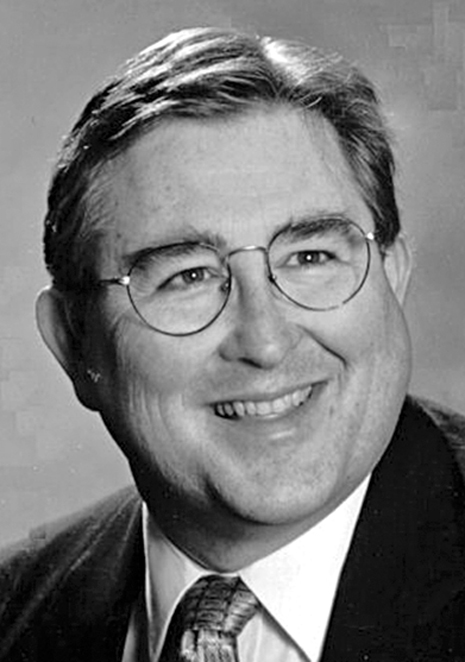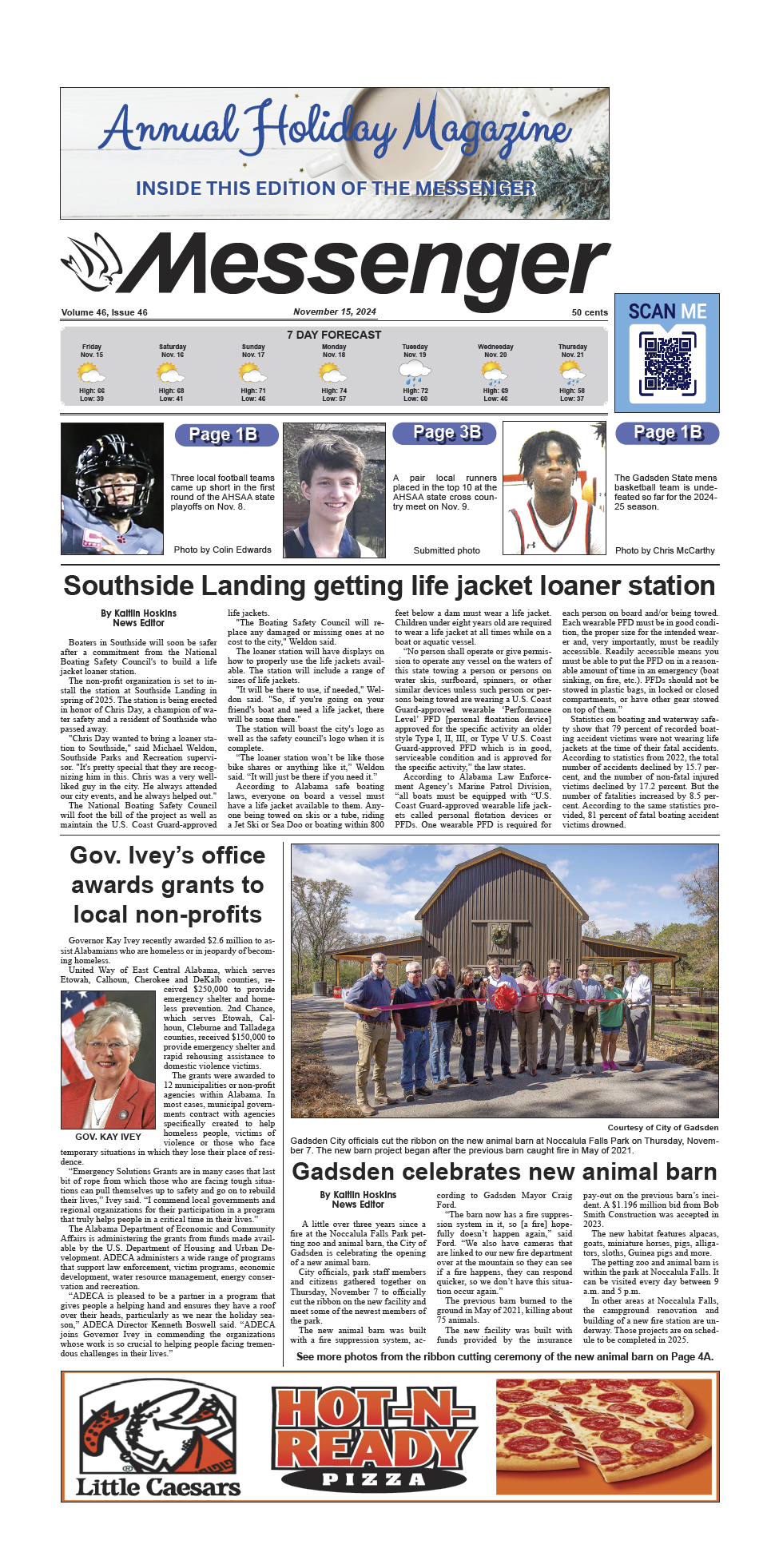By Danny Crownover
Many interesting things happened in Gadsden over a hundred years ago. In a copy of a local evening newspaper issued on October 18, 1911, the advertising sections were really interesting.
There was the ad for Cottle’s Drug Store, which was owned and operated by Frank Cottle. His brother John was the pharmacist for many years.
Cottle’s was one of the favorite resorts of the city. Preachers, sports, politicians and the like gathered almost daily for discussions of almost everything under the sun.
Members of the pastor’s union visited the store for soda water after each Monday morning session of their organization. Cottle’s was also the mecca for football and baseball fans.
The late E.H. Cross advertised some of his own preparations, and he had many. Cross specialized in the Rose Cream for chapped and inflamed skin. The product was a good seller in the Cross Drug Store that was operated by his sons.
The Smith-Echols-Burnett Hardware Company advertised itself as “the largest store of any kind in Etowah County.” The advertisement had a picture of a buggy with an announcement that the store carried such lines as the Party, the Columbus, the Hale, the Columbia and the Durham.
The Hale Buggy was manufactured in Anniston. The firm also carried the Matchless Mitchell Wagon and the Chattanooga Mold-Board Plow.
The Stiefel Drug Store ad-vertised candy. It was succeeded by the Vance Drug Company, which remained at Fifth and Broad Streets. The Gadsden Mercantile Company was selling yellow domestic, chambray and fancy scrim at unheard of prices that would cause a stampede if offered today.
Malone & Davis were selling Smack ‘O London men’s clothes at from $12.50 to $30. Tom Malone and Henry Davis were the proprietors.
O.W. Sibert was making a specialty of stoves and heaters at his hardware and house furnishings store that was later operated by his son William.
The Herzberg-Loveman Dry Goods Company advertised that it was the largest department store in Etowah County.
The Ewing Hardware Company sold old hickory wagons.
The Tricity Gas Company was boosting the incandescent mantle. It served the city with artificial gas.
Benton & Spradlin, a tailoring business, was specializing in Boyden Shoes and ready-made clothing.
Lefevre & Jordan, a real estate firm, was advertising the purchase of land, declaring that Gadsden was on the eve of tremendous expansion. E.R. Lefevre and S.E. Jordan were the firm members.
Whips & Green operated a large real estate firm, the members of which were E.W. Ships and Ed Green.
Taylor and Hoffman operated a jewelry store, which later became Hoffman.
The Etowah Trust & Savings Bank opened on February 1, 1911, in a new four-story building at Third and Broad Streets. It had a full-page advertisement that said that the bank had $200,000 capital paid in, a separate savings department and a separate and trust department. The bank later became the American National Bank. J.B. Wadsworth, the founder, was the bank’s president. Vice-presidents were J.W. Penn and C.S. Ward. S.S. Whips was the cashier, while R.M. Wilbanks was assistant cashier.
The banks’ directors were W.H. Burnett, T.M. Cassels, W.H. Acton, J. Ross Phillips, J.W. Penn, H.L. Gwin, M.B. Johnson, W.H. Mayben, W.H. Portner, H.D. Sturkle, J.T. Siniard, M.H. Killian, W.R. Usry, W.P. Wilson, R.M. Wilbanks, E.W. Whips, J.B. Wadsworth, J.B. Martin, C.S. Ward, J.W. Penn, B.W. Duke, Edwin W. Gaediner and W.H. Hood. Cooper Wadsworth, son of the founder, later became president of the institution.
Contact The Vagabond at dkcrownbellsouth.net.




